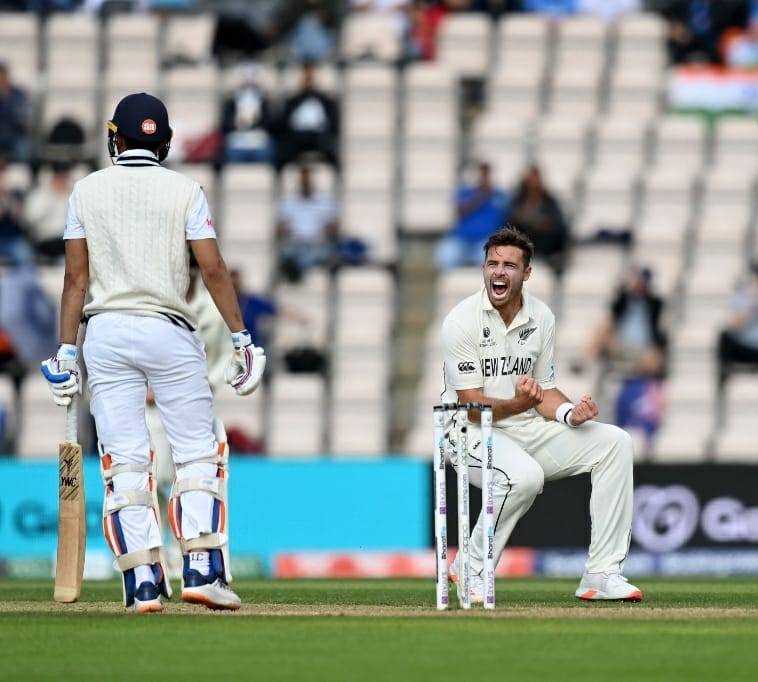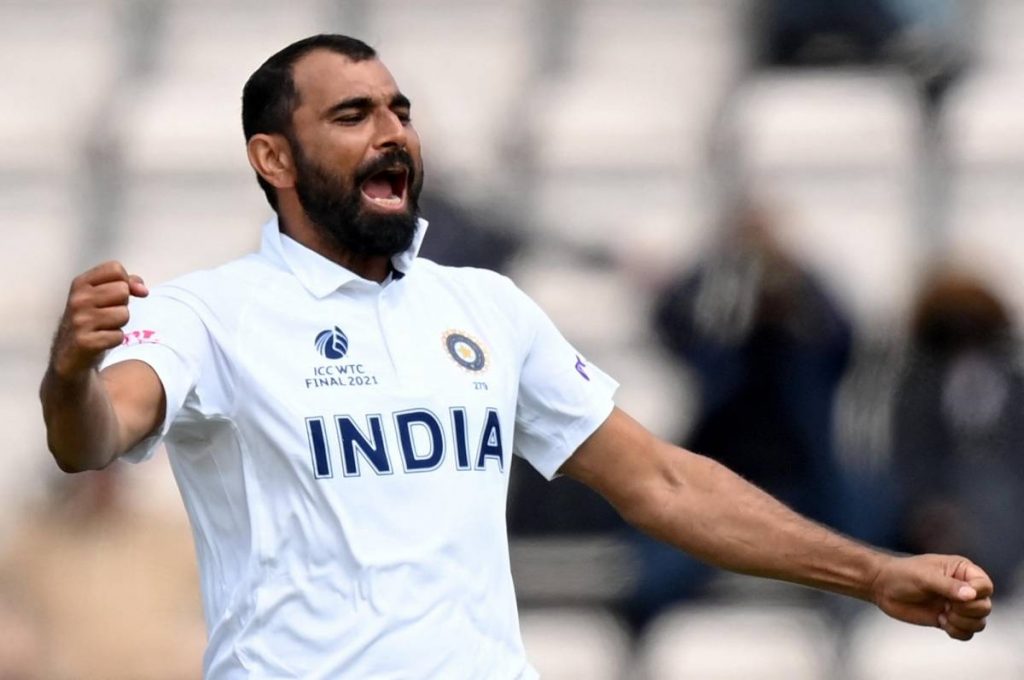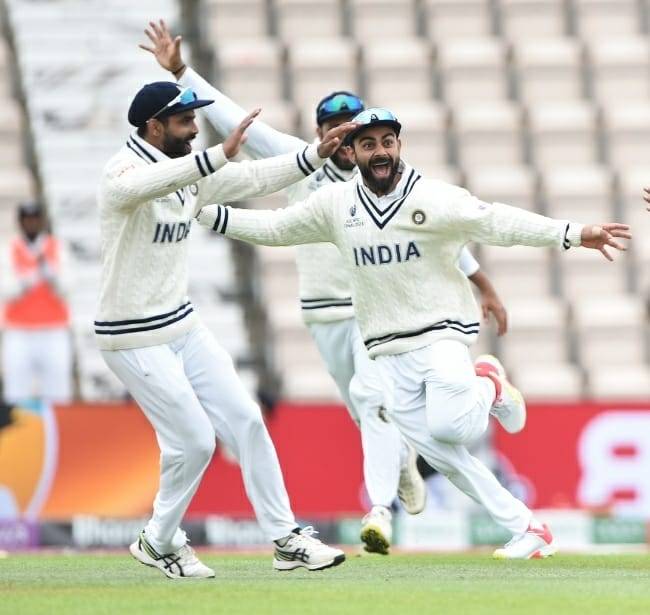An Indian collapse in the 2nd innings would, of course, open the door for New Zealand. Indeed, an assignment below 200 should be within the Kiwis’ grasp. India will, though, probably lower the shutters, if they lose vital wickets… reports Ashis Ray
Theoretically, either India or New Zealand could still force victory in the final of the inaugural World Test Championship — labelled as “The Ultimate Test” by the governors of the game, the International Cricket Council.
If the sun, which finally appeared in a reasonable manner on the 5th day on Tuesday, continues to pierce the clouds on 6th and final day (which had fortunately been kept in reserve), batting conditions should become easier. But that means even if this facilitates India to set a sporting target, it is difficult to visualise them bundling out New Zealand on effectively the same wicket.
The surface is unlikely to dramatically convert itself into a turner, no longer conspiring with the quicker bowlers. India undoubtedly possess the firepower in their batting to cut loose. At the same time, it would be foolish to be reckless in such an apex encounter.

An Indian collapse in the 2nd innings would, of course, open the door for New Zealand. Indeed, an assignment below 200 should be within the Kiwis’ grasp. India will, though, probably lower the shutters, if they lose vital wickets.
New Zealand’s inability to score at an acceptable rate in the morning session made an already daunting task of extricating a result that much harder. The Indian bowling was accurate, but not unplayable. Boundaries were difficult to contrive; but the singles and twos that were available were not availed of.
The Black Caps added a paltry 34 runs in 24 overs. Kane Williamson, the mainstay of their batting, produced only seven runs off 75 balls. They lost three wickets as well.
Ross Taylor failed to check a drive — perhaps surprised by the bounce — which went uppishly to mid-off, where Shubman Gill took a superb low catch diving forward.
Henry Nicholls edged an inswinger from Ishant Sharma, which to the left-handed batsman was an outswinger. And Mohammed Shami picked up his second wicket of the morning with the ball of the innings, which spreadeagled B.J. Watling’s middle and off stumps.
Shami’s fiery spell was further rewarded when he trapped Colin de Grandhomme leg before wicket with an incoming ball and then induced a hook from Kyle Jamieson to apply curtains to an attacking cameo. Both New Zealanders lacked the technique to defend on a pitch with a tendency to produce wicket-taking balls.

Williamson was more purposeful after lunch. But he was saved by an “umpire’s call” when an appeal for lbw by the persevering Shami, referred to the TV umpire, was adjudged as hitting the outer side of off-stump and not more centrally.
Having been thus reprieved, the New Zealand captain rather uncharacteristically played away from his body off the back foot to virtually present a practice catch to his opposite number Virat Kohli at second slip; Ishant being the beneficiary.
By now, though, New Zealand had taken a slender 1st innings lead, which with a few lusty blows from Tim Southee was stretched to 32. An unworrying deficit, given the fact that India had to cope with the more challenging task of batting first on a fresh wicket and mostly under cloudy conditions. The opposition in contrast enjoyed a bit of sunshine for the greater part of their venture.
(Senior cricket writer Ashis Ray is a broadcaster and author of the book ‘Cricket World Cup: The Indian Challenge’)
ALSO READ: WTC: ICC under fire as rain plays spoilport

